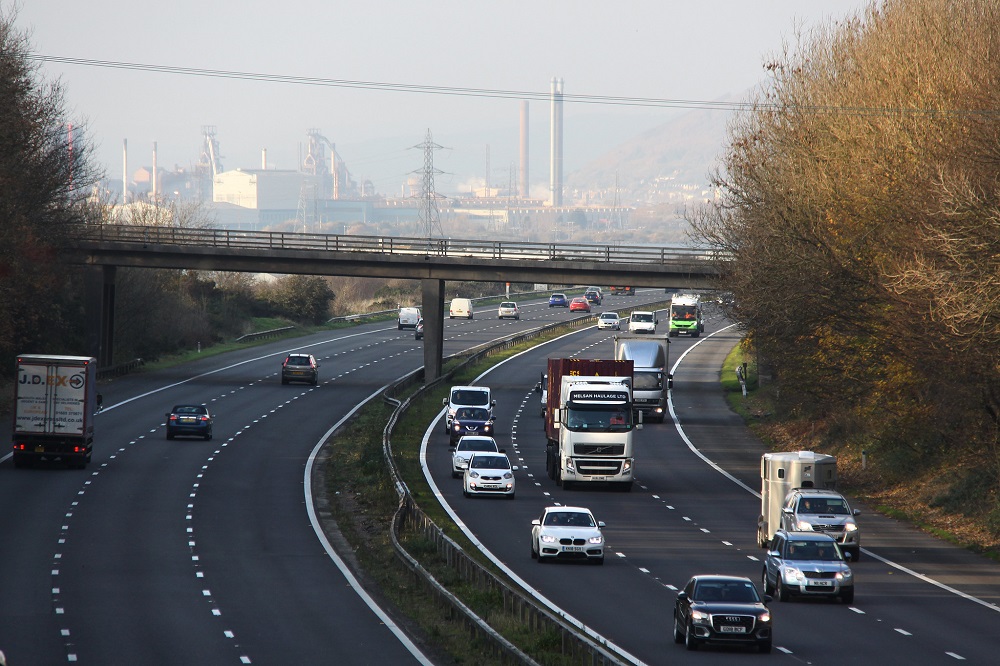Focus on public transport to cut M4 congestion, expert commission recommends

A commission tasked at looking at ways of solving congestion on the M4 has called for greater investment in public transport.
The South East Wales Transport Commission was established by Ken Skates MS to recommend ways to reduce congestion on the M4 motorway without building a new relief road around Newport.
Today it published its final recommendations, suggesting giving people and businesses new transport options that do not involve using a car.
They also suggested measures to reduce the need to travel, including superfast broadband-enabled remote working sites so people can work closer to home.
Commission Chairman Lord Burns said that as the M4 corridor needed a range of attractive, affordable and coordinated transport options to fulfil its potential, just like other European regions.
“It is clear that people in South East Wales do not have good alternatives to the M4,” he said.
“Many people have little choice but to use the motorway, given the lack of public transport options. We believe that a competitively priced, efficient and reliable public transport network could become the first choice for many travellers.
“Even a moderate reduction in the number of cars travelling on the M4 could result in a significant improvement to the travel flow. The changes we are suggesting would generate considerable extra capacity in our region’s transport system. This shift to public and active transport would have many wider benefits beyond relieving congestion, including cutting air pollution, improving public health, and providing better access to jobs and services for everyone.”
‘Ambitious’
The public transport suggestions centre on improving rail provision between Cardiff, Newport and Bristol by upgrading the existing four tracks of the South Wales Main Line, so that these tracks can be used by more trains with more flexibility.
For the first time, this would allow for local, commuting services to run frequently without disrupting express rail services, they said. They also suggest an “ambitious” rail station building programme, which would add six new rail stations between Cardiff and the River Severn.
To complement existing stations at Cardiff Central, Newport and Severn Tunnel Junction, the proposed new stations would be:
- Newport Road (Cardiff)
- Cardiff Parkway (St Mellons)
- Newport West
- Newport East (Somerton),
- Llanwern and Magor.
The rail backbone would be supported by new rapid bus and cycle corridors across the region, especially within Newport, they said.
Taken together, over 90 percent of Cardiff and Newport’s population would live within a mile of a rail station or rapid bus corridor if the proposals are taken forward, the commission said.
They added that many these recommendations can be delivered through upgrades to the existing rail and road network.
Beyond infrastructure, the report recommends:
- New ways to organise transport services, speeding up interchange, coordinating timetables and integrating ticketing
- A new governance model so there is a ‘single guiding mind’ to organise the whole public transport network
- Local authorities consider introducing a workplace parking levy to influence travel choices, once public transport improvements have been made
- A transport-focused approach to planning, ensuring developments are built around the public transport network rather than the motorway
The Commission’s final recommendations follow their earlier fast-track recommendations relating to M4 traffic management, which included replacing the current Variable Speed Limit with a new average 50mph speed control and measures to improve lane discipline on the approach to the Brynglas tunnels.
Support our Nation today
For the price of a cup of coffee a month you can help us create an independent, not-for-profit, national news service for the people of Wales, by the people of Wales.






